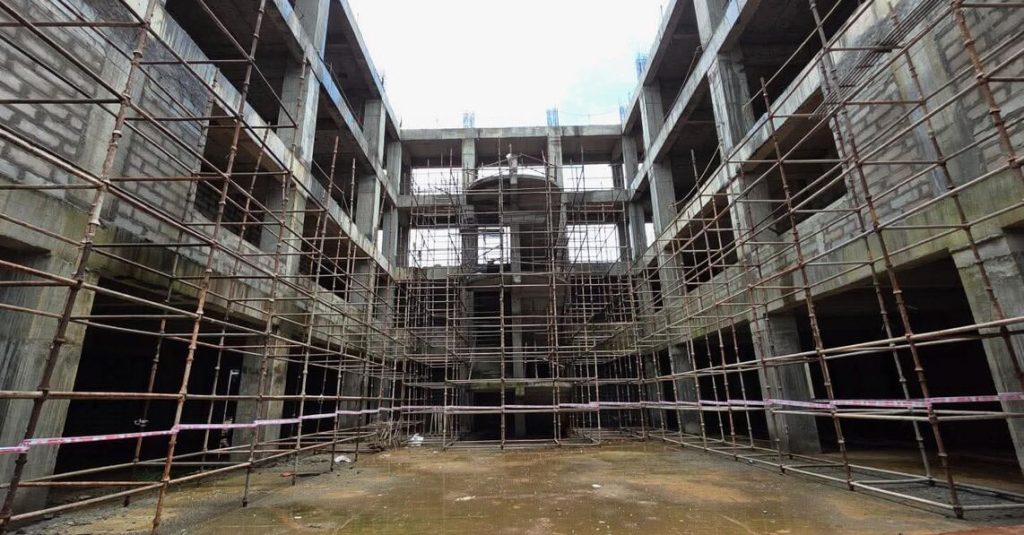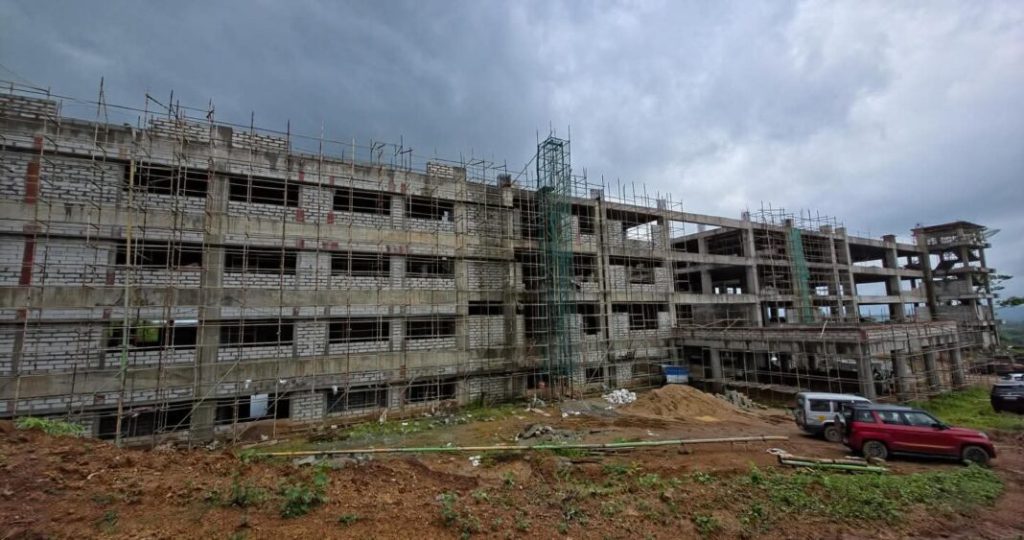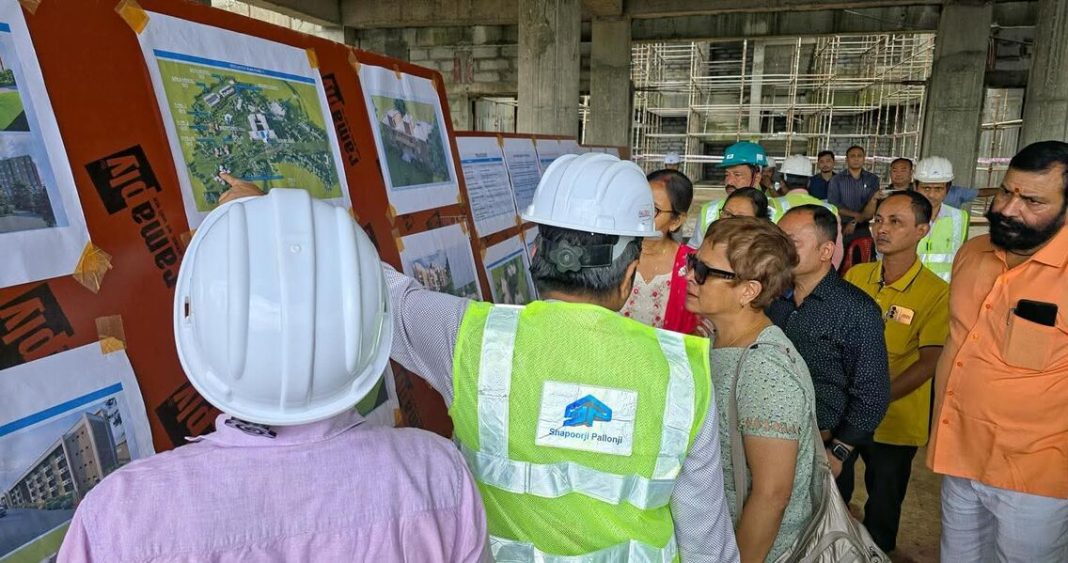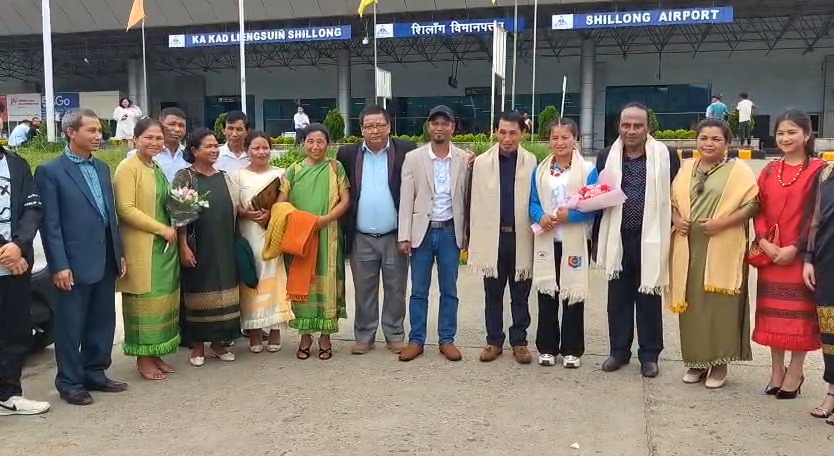Minister visits construction site * Phase I work 75% complete * Deadline extended till March 2026
Shillong, June 21: Health minister Ampareen Lyngdoh has reiterated the government’s commitment to expediting work on Tura Medical College, the first medical college in Garo Hills region.
The minister on Saturday visited the construction site along with senior officials, conducted a detailed review and instructed relevant departments to address challenges that have delayed the project.

Construction of Phase I of the project is 75% complete while there has been steady progress in the Phase II work, officials told the minister.
Infrastructure of water supply, a crucial component, has reached the site and is expected to be functional soon, enabling the next stage of development.
Completion of 70% work on the 1.7-km approach road also marks a significant development as, once complete, it would not only accelerate construction activities, but also become a crucial part of the hospital once it becomes operational.
Structural part of the Electrical Substation (ESS) is also complete, but it awaits energisation.
According to officials, Finance department is currently processing the required file, after which the Meghalaya Energy Corporation Limited (MeECL) will initiate the 33 KVA power connection.

Meanwhile, the project’s original deadline of December 2025 was extended to March 2026 with officials attributing the delay to site-specific challenges and procedural clearances.
Speaking to media after conducting a review of the project, the minister said the government is determined to strengthen medical education and healthcare delivery in the region.
“This visit was about tracking key milestones, resolving pending issues, and reaffirming our commitment to bringing quality medical education and healthcare to the Garo Hills,” she said.

She added that the medical college will open new academic and employment avenues for youth in western Meghalaya and significantly improve access to healthcare.
“The college will not only empower aspiring doctors from the region but also reduce the need for patients to travel long distances for education and treatment,” Lyngdoh said.




